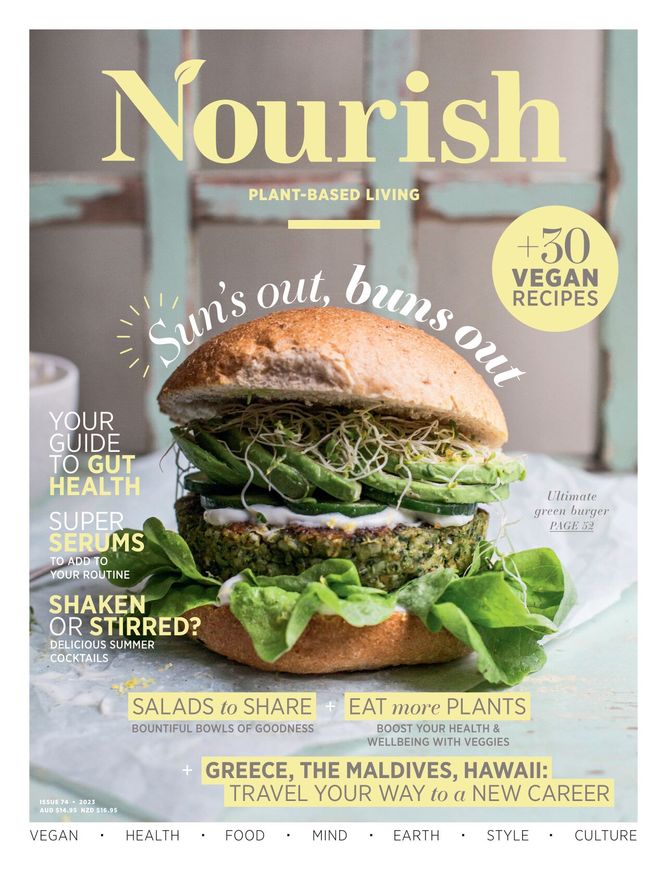Sustainability
Readly aims to have a positive impact on society through digitising the magazine and newspaper industry.

Through the digitalisation of the magazine and newspaper industry we strive to contribute to thriving societies and a healthy planet. Read more about our sustainability work in our 2023 Sustainability Report here.
During 2020, subscribers, publishers, employees, the Board of Directors, investors, equity analysts and others were given an opportunity to share their perceptions of Ready from a sustainability perspective. This formed the basis of Readly’s materiality analysis. 14 prioritised aspects have been compiled and three aspects have been singled out as having particularly material importance and where Readly can have the greatest potential to make a difference.
1. Provide responsible content and counter the spread of fake news
Readly provides an offering in which there is a editor-in-chief behind all content on the platform who is responsible for the respective publications’ operations, content and policies. Content on Readly must also be in compliance with the respective countries’ laws and regulations, be relevant for our subscribers, and meet our ethical guidelines.
Nearly three years into the pandemic, the Corona virus remains persistent and misleading narratives continue to spread. Information manipulation and disinformation have also been applied as a tool in Russia’s assault on Ukraine. We are therefore glad to have expanded our portfolio at Readly to include content from a number of well-established journalism institutions.

Readly recently welcomed 160 regional British newspapers such as The Liverpool Echo, Manchester Evening News and Cambridge News. In Germany, we have added 40 regional and local newspapers such as the WELT AM SONNTAG editions for Hamburg, Bavaria and North-Rhine-Westphalia. And in Sweden we have added one of the largest national newspapers, Svenska Dagbladet.
It is important for Readly that the content we provide through third-party publishers is relevant to our audience and in line with our ethical guidelines as laid out in our Code of Conduct and our Supplier Code of Conduct. Our content team vets all magazines manually before they are included in our platform.
2. Empower people to be educated, engaged and entertained
There are countless examples of how journalistic content can be a force for good. It empowers consumers to understand the complex world we live in, to gain knowledge, to find inspiration and get engaged, to learn new skills and explore new interests, or quite simply to enjoy an entertaining moment at the end of the day. At Readly we can bring that positive force to people, connecting our subscribers with all the quality content we offer on our platform – magazines and newspapers from the respected and well-known publishers that we partner with. Through digitalisation we help our readers gain perspectives from both national and international sources the minute the latest issue is released, in addition to giving them access to a vast catalogue of back issues.

Last but not least, many people read magazines quite simply as a form of entertainment – to unwind from daily routines, relax, enjoy “me-time” and for a bit of escapism. Categories such as crosswords, DIY, celebrity & entertainment, and food & drink are all examples of popular content. Entertainment as such can therefore have a positive impact on well-being and be a source of happiness.
3. Contribute to climate-friendly magazine and newspaper reading
Through digitalisation Readly’s goal is to increase the consumption of journalistic content with the lowest possible climate impact. Our subscribers are clearly environmentally conscious. Our yearly surveys show that the choice of buying a Readly subscription is based partly on a desire to reduce one’s environmental impact. Customers in all our markets have ranked the fact that Readly is a climate-friendly way of consuming magazines as one of the most important sustainability aspects.
Thanks to Readly subscribers from 50 markets and 1200 digital publishers worldwide, 160 million magazine issues were read digitally on our platform during 2023. As digital reading has lower climate impact than the printed equivalents, a total of approximately 18,200 tonnes of greenhouse gas emissions have potentially been avoided. This is equivalent to the emissions of producing and recycling over 280,000 mobile phones. Please read our climate study 2024 here and the detailed segment in our 2023 Sustainability Report found here.

Our policies
The Readly Code of Conduct incorporates the Ten Principles of the United Nations Global Compact, our values “the Readly Mindset” and what we at Readly generally consider to be proper and responsible behavior.
We require all our suppliers and business partners to also support and comply with the principles set out in our Supplier Code of Conduct.
Readly's DEI (Diversity, Equity & Inclusion) policy forms the basis for our DEI efforts.
Our IT and Information Security Policy regulates how Readly manages information and information technology security and also privacy.
The Privacy Policy explains how and why we use the personal data that is shared with us and which we collect. Our Cookie Policy explains Readly's usage of cookies.
Readly's content rules ensure that the content on our platform is relevant for our audience and in line with our ethical standpoints.
Our Environmental Policy forms the basis for Readly’s environmental work.
For more information please contact
Linnéa Aguero, head of Comms & Sustainability, sustainability@readly.com
Related content